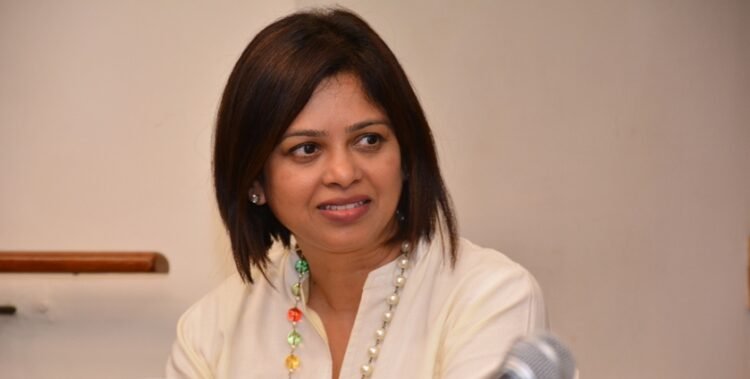WPP India Foundation was launched by WPP to address the two key social challenges of India including poor learning outcomes in secondary school education and the youth unemployment. The Foundation envisions to lead the underserved youth in India from improved educational outcomes to making informed livelihood choices. In an interview with India CSR, Rama Iyer, Director General WPP India CSR Foundation shares the journey of the Foundation so far, what is the vision of the foundation and what are the careers in corporate CSR.
Journey of WPP India Foundation over the last 3 years and the nature of impact it has made?
India has one of the largest pool of young people entering the workforce of the country. While this remains a key demographic for the country, it faces two key challenges where youth graduating has poor learning outcomes and lack the necessary work-readiness skills. To address these challenges, WPP, a global transformation company launched the WPP India Foundation.
In three years, WPP India Foundation has continued to build a proof of concept in the urban and peri urban slum communities of Mumbai and Delhi NCR for its Education to Livelihood program (E2L) that was launched in June 2016 in 10 schools with over 15000 children.
We have improved school retention in secondary school education, with average attendance to 96% in 2018, more than national average of 73%. In addition, with improved learning outcomes in the subjects of English and Mathematics, we observed our 10th grade children scoring way higher than the national averages based on NCERT test.
At WPP Foundation we want our children to be future ready, for which we have introduced—coding, 3D designing and robotics to the children. With the introduction of these digital technologies, we also observe increase in technical knowledge among the children.
Over 60% of our children in 12th grade and above have opted for livelihood skilling program. Out of these children at least 70% of the children are placed in corporates at the end of our program after going through enhanced work-readiness skills training.
We have reduced gender and caste-based discrimination among our children, with peer engagement continuing to grow each year. Our children are also instilled with skills for goal setting, helping them not only plan their today but also their tomorrow.
Overall vision and focus areas of the Foundation
WPP India Foundation was launched by WPP to address the two key social challenges of India including poor learning outcomes in secondary school education and the youth unemployment. The Foundation envisions to lead the underserved youth in India from improved educational outcomes to making informed livelihood choices.
Our focus areas include improving school retention in secondary school education, increasing learning outcomes, enhancing work-readiness skills, addressing deep-rooted social norms
Details on flagship initiatives/programmes undertaken by the Foundation
WPP Foundation has launched our flagship program—Education to Livelihood (E2L) to ensures to make its children future-ready.
We work with children in our program for 7 years. We work with our children to support them through a holistic development program where we engage with the key stakeholders in their eco-system, including—parents, teachers, peers and community. We focus in the key areas of—increasing school retention, improving learning outcomes, enhancing job-skills and addressing deep-rooted social norms. We are creating social impact which can then be scaled across geographies.
While we have over 20 interventions as part of our E2L program, we are focused on bridging the digital divide among our children and making them future ready. For this purpose we have introduced our Digital Education Program.
Please tell us about your Digital Education program
Our Digital Education program has introduced experiential learning through our digital education programme, as the children learn to build computers and robots of their own, before learning to code and programme them.
Our digital interventions have brought our children closer to their imagination by teaching them to code, design 3D models and programme robots.
Through KANO computer kit, we have helped children understand the difference between hardware and software of the computers. They have also been introduced to scratch coding. The ability of our children to code has doubled up since the launch of our interventions. Over 60% of girls in this programme have a renewed interest in pursuing computers as a career option. Through our 3D model designing course, we have tapped into the spatial reasoning of our children.
Through Robotics, our children’s inhibition towards digital technology was greatly reduced. With improved knowledge about robots and programming them, our children reported improved logical reasoning.
Your views on changing role of corporate social responsibility?
Today’s India is a marked shadow of its past, while the country transforms towards modern innovations and economic growth there are past traditions that continue to drive its people. India’s history is marked with a civilization divided between those who lived within the palace walls and those that were outside. Giving and providing to those on the other side of the walls was part of our lifestyle.
As Indian civilization matured, there were Indian businesses that led the development of societies. Villages were adopted by the Indian companies where they set up their factories to create a sustainable livelihood in their environment. Welfare of the communities remained a priority for the companies with infrastructural support and community schools promoting the growth of these areas. These growth centers remain a sustainable growth model for a country like India.
However, we also tend to be vary when we are given rules and mandates to follow where everyone is required to take initiatives by law. Here, organisations need to start planning for the long-term strategy where social responsibility gets imbibed in the office culture.
There is a need of special skills which can help drive the 2% business of the organisation where 98% of the organisation focuses on its core business. Our requirement today will be to make corporate social responsibility part of every board room discussion to take this Indian ethos of “giving” become a part of each organisation’s culture.







